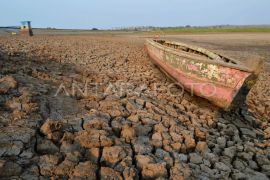We have never seen this before."Sydney (ANTARA News) - Large swathes of key mangrove habitat in Australias north have died due to impact of the severe El Nino weather system earlier this year that was exacerbated by climate change, potentially having large impact on Australias tourism and fisheries industry.
Approximately 7,000 hectares of mangrove in Gulf of Carpentaria between Queensland state and Australias Northern Territory have died off over a single month on a scale which James Cook University professor of coastal and estuarine ecology Norman Duke said was unprecedented.
Scientists had heard anecdotal evidence of about the potential die-back of mangroves - a crucial nursery for a variety of commercially important species for both fisheries and tourism - while the Great Barrier Reef was being bleached, but it was only recently confirmed by aerial and satellite surveys along the 700 kilometer stretch of coastline.
"We have seen smaller instances of this kind of moisture stress before, but what is so unusual now is its extent, and that it occurred across the whole southern gulf in a single month," Duke said in a statement on Monday (July 11).
"What we are seeing is a natural process, but nature usually does this incrementally. Not with such severity. We have never seen this before."
All evidence points towards changing climate conditions, rather than high temperatures alone after the extended dry season in Australias top end that had only one month of rain, rather than the usual five, Xinhua reported.
"By all accounts, the climate is going to become more erratic, so we can expect these types of events to become more common," Duke said, noting some species of mangrove will never recover.
Mangroves are an important habitat for commercial fisheries by providing a nursery ground and harsh weather protection for species of prawn, crab and some species of fish, but also Australias on water tourism industry.
However there has already been anecdotal reports of marine life dying and piles of dead seagrass washing ashore due to the loss of the mangrove habitat, Duke said.
"If thats true, then turtles and dugongs will be starving in a few months," Duke said.
Editor: Priyambodo RH
Copyright © ANTARA 2016











